People of Morocco
People of Morocco
The people of Morocco offer a fascinating blend of cultures, ethnicities, and traditions, reflecting the country's rich history at the crossroads of Africa, Europe, and the Middle East. Understanding these aspects can greatly enrich the experience of travelers exploring Morocco through Our tours.
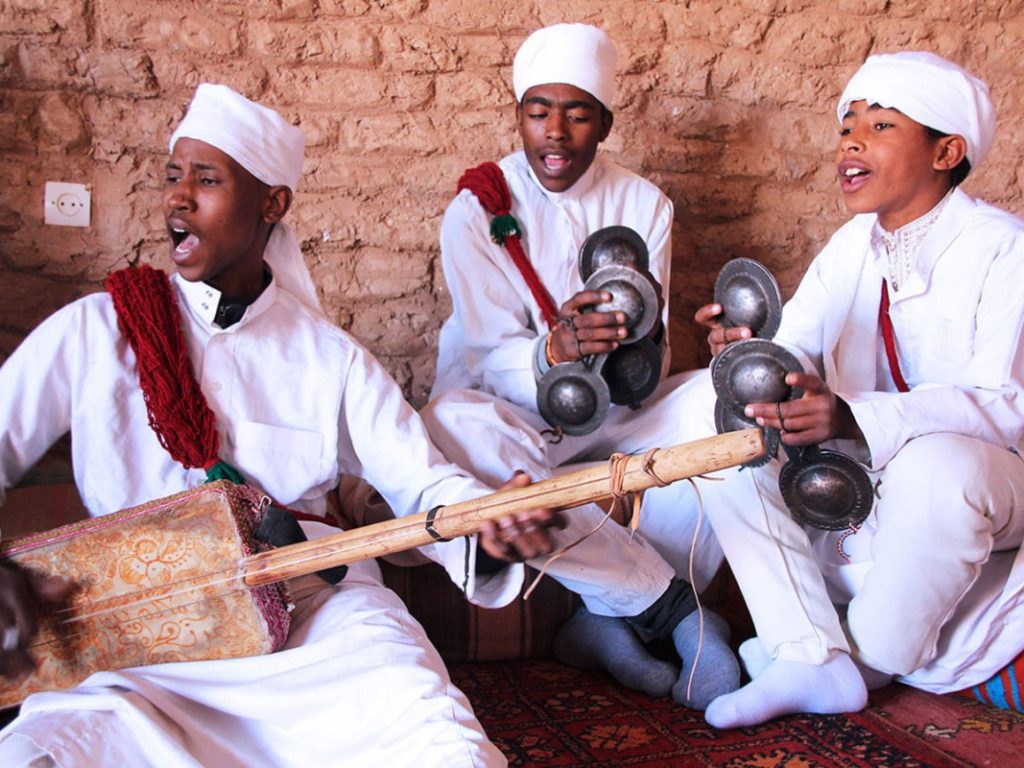
Demographics and Ethnic Makeup
As of 2023, Morocco's population is approximately 37.8 million, with a median age of 29.3 years. The fertility rate is 2.3 births per woman, and the life expectancy is 75.2 years, indicating a stable and growing population. Notably, 65.9% of Moroccans live in urban areas, with Casablanca, Rabat, and Fes being some of the largest cities.
Ethnically, most Moroccans identify as Arab-Berber, a blend that has evolved over centuries of intermingling. There's also a significant Black Moroccan population, primarily descended from former slaves and labor migrants from sub-Saharan Africa. Despite some discrimination, their cultural influence is significant, especially in the music and arts scenes. A small but important Jewish Moroccan community still exists, along with large groups of Amazigh (Berber-speaking) Moroccans, Sahrawis, and immigrants from various regions.
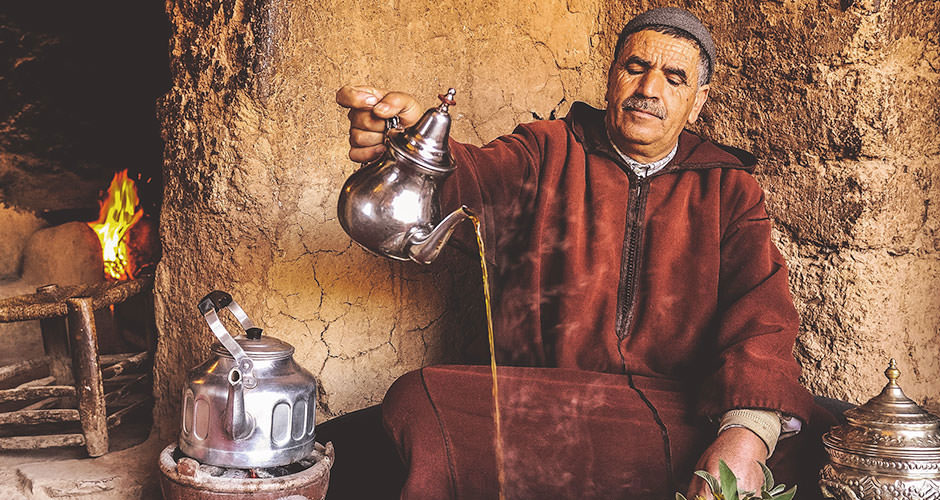
Cultural Influences
Moroccan culture is heavily influenced by its Berber roots. About 30% of the population is of pure Berber heritage, with the vast majority having some Berber ancestry. Berber groups, such as the Drawa, Shilha, Riffia, and Sanhaja, have distinct languages and customs but identify collectively as Amazigh, meaning "free people"........
The country's history of colonization by France and Spain has left lasting impacts in language, architecture, education systems, law, art, and cuisine. Moroccan Arabic is infused with French and Spanish words, and immigrants from Africa have introduced new art, music, and dance styles.
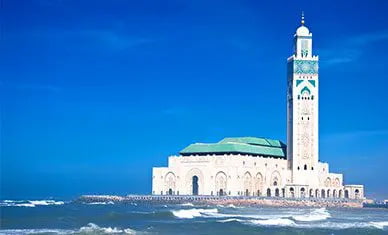
Religion and Spirituality
Islam is the predominant religion, with most Moroccans being Sunni Muslims. There's a small minority of Shia Muslims and followers of Sufism, known for its sacred poetry and mysticism. Christianity and Judaism also have a presence, especially in larger cities
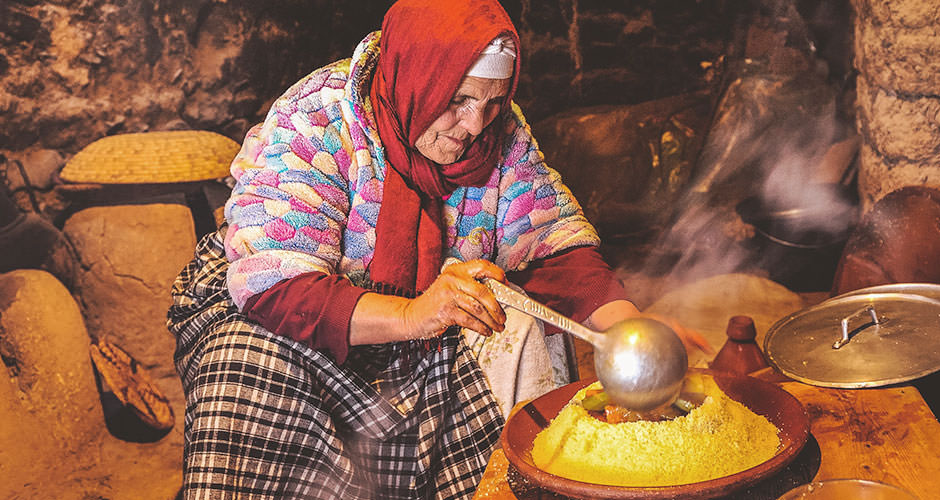
Customs, Traditions, and Cuisine
Morocco is known for its hospitality and cultural blend. Traditional Moroccan weddings are elaborate, vibrant celebrations of unity and love. Traditional clothing varies based on the occasion, with djellabas for casual wear and more elaborate attire like caftans and takshitas for formal events.
Moroccan cuisine reflects centuries of trade and conquest, blending sweet and savory flavors, a tradition dating back to Ancient Roman cuisine. Dishes like Tajine, Couscous, Pastilla, and Harira embodyregional influences and ancient cooking traditions.
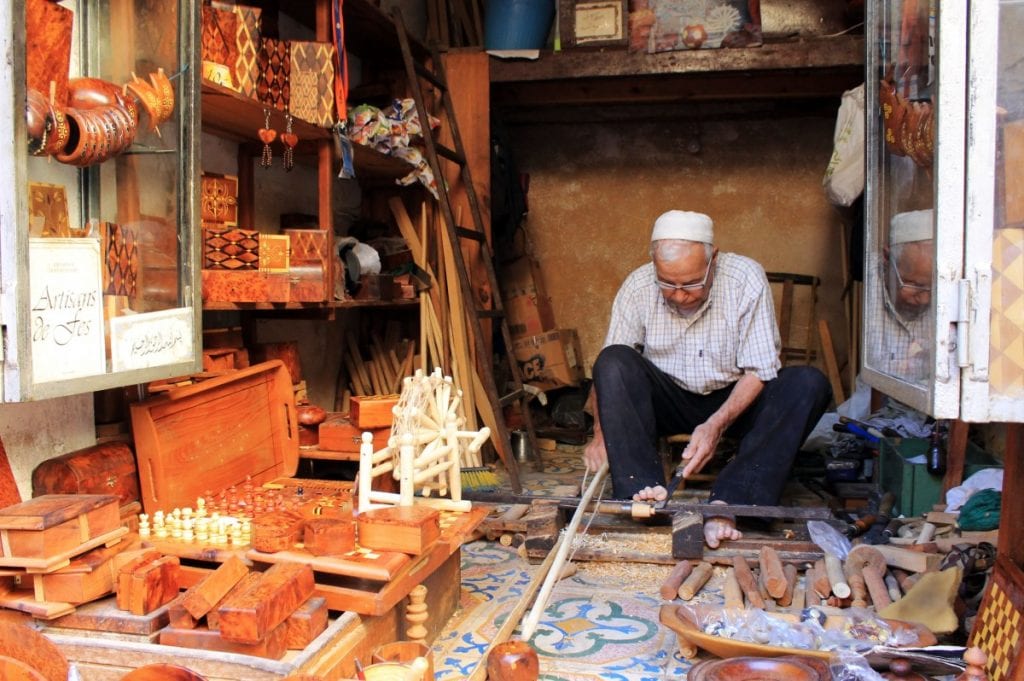
Music and Arts
Moroccan music is diverse, reflecting its multi-ethnic background. Traditional genres like Gnaoua, Berber, Rai, and Andalusian music have seen a revival. Andalusian music, dating back to the 9th century, is considered Morocco’s classical music and is played on special occasions, while Chaabi music is more popular and festive, often played at weddings and parties.
Conclusion
The people of Morocco, with their rich ethnic diversity and cultural heritage, offer a unique and vibrant experience for travelers. Their traditions, cuisine, and music not only reflect the country's historical depth but also its dynamic present.
Related Morocco Blog Posts
Explore other posts related to travel in Morocco below
15 Unforgettable Experiences in Morocco
Discover the magic of Morocco with our curated list of 15 must-do experiences that cater to every type of traveler. From the vibrant streets of Marrakech to the tranquil Sahara Desert, immerse yourself in rich culture, history, and breathtaking landscapes.
The Best Times to Experience Morocco
Discover the ideal seasons for your dream journey to Morocco with our comprehensive guide. From the vibrant spring and autumn to the mild coastal charm year-round, we highlight when to explore this enchanting country and how to navigate cultural considerations like Ramadan for an unforgettable travel experience.
Discovering Morocco: A Tapestry of Culture and Diversity
Begin a journey through Morocco's rich cultural tapestry and diverse peoples, revealing the fascinating blend of ethnicities and traditions that define this kingdom. From the significant Arab-Berber population to the vibrant influences of music, cuisine, and customs, understanding the depth of Moroccan culture enhances the travel experience for all adventurers.
Staying Safe in Morocco: A Travel Guide
Ensure a memorable experience in Morocco by learning how to stay safe while enjoying its vibrant culture and stunning landscapes. This guide covers essential tips on avoiding scams, managing petty crime, dressing appropriately, and traveling safely in rural areas, allowing you to embrace the beauty of Morocco confidently and respectfully.
The Benefits of Customized Private Tours in Morocco
Experience the rich cultural diversity and stunning landscapes of Morocco through customized private tours. These tours provide the perfect opportunity to create a personalized itinerary, explore hidden gems, and enjoy the comfort of having a dedicated guide and driver, ensuring a deeper connection with the local culture and a memorable travel experience.
Explore Morocco's Best Destinations
Discover the mesmerizing historical and architectural treasures of Morocco with our guide to the country’s best destinations. From the vibrant souks of Marrakech to the serene gardens of Fez, each city offers unique cultural experiences and breathtaking landmarks, making your journey through Morocco an unforgettable adventure filled with rich heritage and stunning sights.